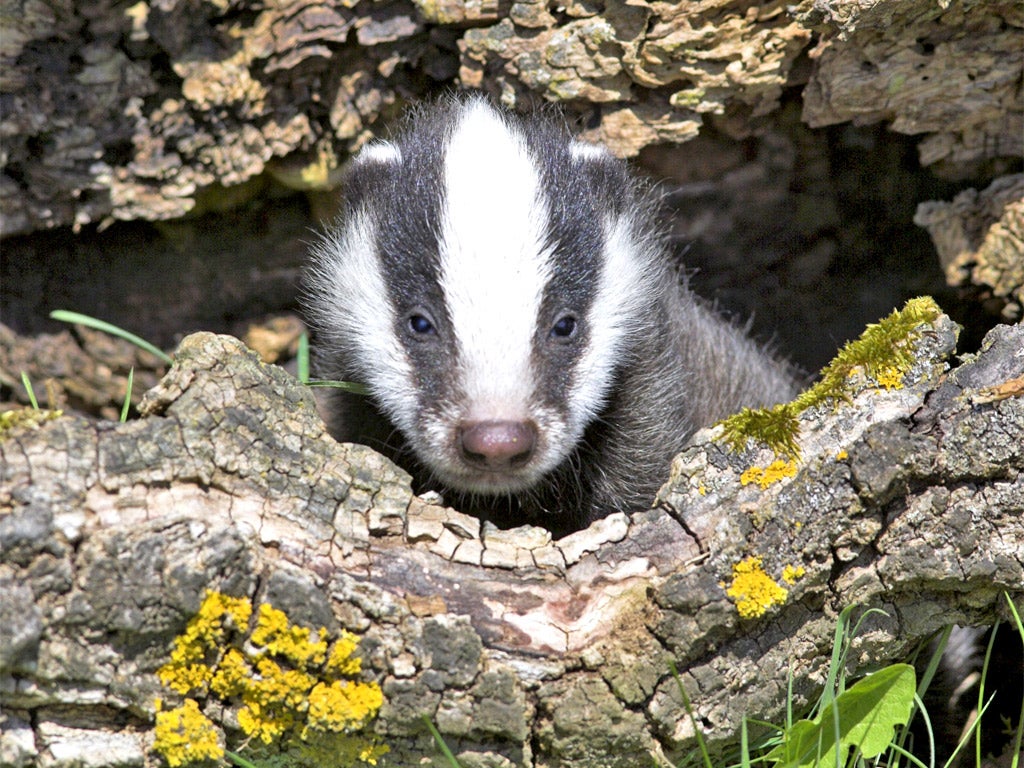‘The badgers have moved the goalposts’: Why Owen Paterson must wish he could join them, six feet underground
Targeted animals wreak havoc on the Evironment Secretary’s key programme – but he still calls six-week cull ‘a success’

Your support helps us to tell the story
From reproductive rights to climate change to Big Tech, The Independent is on the ground when the story is developing. Whether it's investigating the financials of Elon Musk's pro-Trump PAC or producing our latest documentary, 'The A Word', which shines a light on the American women fighting for reproductive rights, we know how important it is to parse out the facts from the messaging.
At such a critical moment in US history, we need reporters on the ground. Your donation allows us to keep sending journalists to speak to both sides of the story.
The Independent is trusted by Americans across the entire political spectrum. And unlike many other quality news outlets, we choose not to lock Americans out of our reporting and analysis with paywalls. We believe quality journalism should be available to everyone, paid for by those who can afford it.
Your support makes all the difference.It’s foxes rather than badgers that are best known for their cunning. The Environment Secretary may feel the dictionary of English idioms needs to be updated, however, after Owen Paterson said the sneaky black and white creatures had “moved the goalposts” and undermined a pilot cull of the animals.
While the phrase is common in political parlance when searching for excuses or scapegoats, using it to accuse a furry opponent of causing problems for a key Government policy appears to be a first.
Mr Paterson made the comment after he declared the six-week cull in Somerset a success – despite marksmen killing only 850, or 40 per cent, of the 2,100 badgers originally targeted and asking for a three-week extension to complete the job.
His attempts to describe the results as an achievement led to an interviewer suggesting that he had “moving the goalposts on all fronts”.
“No, that’s not right at all, the badgers have moved the goalposts,” Mr Paterson told the BBC in reply. “You’re dealing with wild animals. It is a wild animal subject to the vagaries of the weather, disease and breeding patterns.”
If Mr Paterson’s claims are correct, however, the badgers’ victory over Whitehall would be a pyrrhic one. The Department for the Environment, Food and Rural Affairs argues that the reason why fewer of the animals have been shot than expected is because so many of them have already died – due to a combination of bovine tuberculosis and the cold winter weather reducing the availability of food, significantly curbing the badger population over the past year,
Mr Paterson said that because the badger population was so much smaller than previously thought, the cull had actually succeeded in killing 59 per cent of the animals in the zone.
However, Professor Sir Patrick Bateson, president of the Zoological Society of London, said: “The government really is moving the goalposts... It is absolutely a mess and it’s interesting that Defra is changing the rules.”
This would not be the first time that badgers have wreaked havoc for Mr Paterson’s plans – and some wags might suggest they have been more successful than his political or envionrmental opponents. His claim that the badger population was much smaller than previously thought comes just a year after he postponed the badger cull by around nine months to this summer after finding badger numbers were higher than expected.
He said at the time that it would be wrong to embark upon a badger cull at that point because the bigger-than-expected population would make it difficult to hit the 70 per cent target before the start of the winter.
Although the delayed cull fell short of that aim nevertheless, Mr Paterson seemed quite pleased, pointing out that the government’s chief veterinary officer, Nigel Gibbens, “has advised that the 60 per cent reduction this year will deliver clear disease benefits as part of a 4-year cull”.
Still, hitting the original target would be even better, Mr Paterson mused. “The advice of the CVO [chief veterinary officer] is that further increasing the number of badgers culled would improve those benefits even further and enable them to accrue earlier,” he said.
Given his knowledge of the fluctuations in badger populations, some experts expressed surprise that Mr Paterson proceeded with the badger cull on 1 September. This was before he knew the results of the latest population estimate, which were only finalised last week, just days before the cull was due to end.
A Defra spokesman said the independent panel of experts convened to advise the government on the cull had recommended that they take the latest badger census as close to the start of the cull as possible to ensure the most up-to-date figures.
The Defra spokesman added that it would not have been possible to wipe out the entire local badger population by a mistake because the cull was carried out on only 70 per cent of the culling zone.
Join our commenting forum
Join thought-provoking conversations, follow other Independent readers and see their replies
0Comments